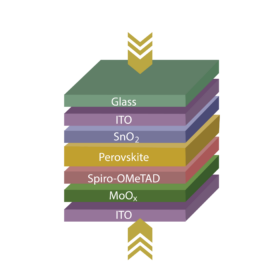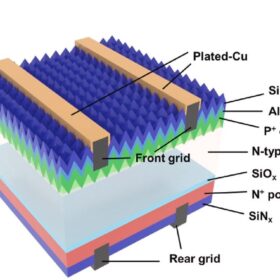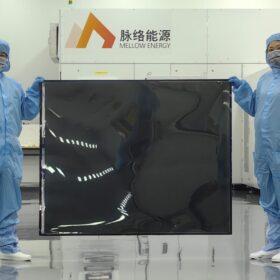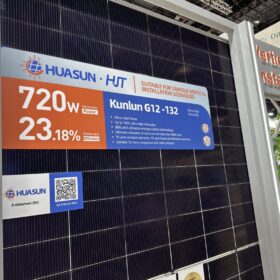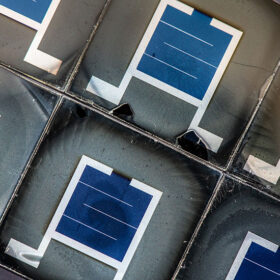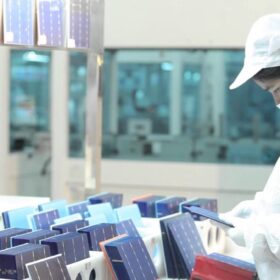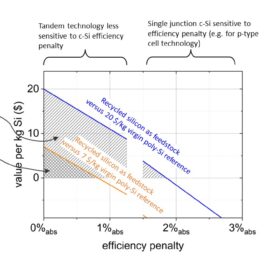Back contact solar module manufacturing capacity may reach 1 TW by 2030, says tech expert
Radovan Kopecek, an expert on back-contacted (BC) solar cell and module technologies, spoke with pv magazine about BC manufacturing costs, efficiency and technical challenges. He believes that global BC solar module manufacturing capacity could reach 1 TW by 2030, potentially making BC products the industry’s mainstream technology. Kopecek added that 2028 will be a crucial year for its development, as most of the critical patents associated with this module tech will expire.
Chinese researchers build 4T perovskite-CIGS tandem solar cell with 29.36% efficiency
Scientists in China built a four-terminal perovskite-CIGS tandem solar cell based on a top semi-transparent perovskite device with an efficiency of 21.26% and a high bifaciality factor of 92.2%. They used a solvent-annealing strategy to produce a perovskite film with full coverage, larger grains, superior crystallinity and free of detectable lead iodide impurity.
Reducing TOPCon solar cell degradation via copper plating
Researchers at the University of New South Wales have used a 1 µm copper plating layer on the front silver grid of a TOPCon solar cell to create a protective barrier that reportedly reduces corrosion susceptibility. The cell showed significantly lower contaminant-induced degradation that unprotected reference devices.
Floating solar could reach LCOE of $0.053/kWh in Saudi Arabia
Scientists in Saudi Arabia have assessed the techno-economical feasibility of floating PV plants at three different dams and have found that such projects could have a return on investment of 12 to 13 years.
Chinese startup unveils flexible perovskite photovoltaic modules with 15.6% efficiency
Mellow Energy claims its ML-Flex panel is currently the world’s largest flexible perovskite solar module. Available in five versions with power output ranging from 260 W to 300 W, the module measures 1,200 mm x 1,600 mm and weighs only 2.04 kg.
Huasun debuts 720 W solar modules for vertical PV projects
Huasun has launched its 720 W Kunlun G12 dual-glass bifacial solar panels for vertical PV projects at the World Future Economic Summit in Abu Dhabi. The panels feature a 23.2% power conversion efficiency and enhanced mechanical stress resistance with a steel alloy frame.
U.S.-made perovskite-silicon tandem solar modules could be produced at around $0.35/W
Techno-economic analysis conducted by NREL researchers has shown how perovskite-silicon tandem solar modules could currently hardly compete in cost with incumbent PV panels. Production costs for U.S.-made tandem products were found to range between $0.29/W and $0.42/W, with module efficiencies ranging from 25% to 30%.
JinkoSolar claims 33.84% efficiency for perovskite-silicon tandem solar cell
The result was confirmed by the Shanghai Institute of Microsystem and Information Technology under the Chinese Academy of Sciences (CAS).
New research sheds light on impact of sodium-induced degradation in heterojunction solar cells
University of New South Wales researchers investigated the impact of sodium-induced degradation in heterojunction solar cells under accelerated damp-heat testing. They considered three different types of sodium salts and identified the degradation mechanisms attributed to each contaminant.
Prospects for reusing silicon from end-of-life solar modules in new ingot production
Scientists in the Netherlands proposed a new testing scheme for recycling silicon from end-of-life photovoltaic panels. Their methodology helped create different wafer categories for recycling silicon for new ingot production but also showed that most of recycled silicon in the near future will come from p-type products, which will harldy be reutilized in a market now dominated by n-type modules.


